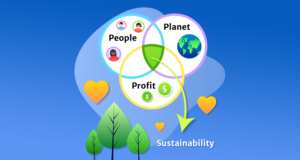3 Powerful Insider Tips to a New Freelance Consultant
Hello to my favorite New Freelance Consultant.
You’re about to embark on the exciting journey of independent consulting. You have completed your studies and have some work experience – enough, you think, to launch a new career.
You’ve asked what you should know about engaging in projects with businesses. I thought I’d be telling you about building relationships and trust, about special consulting techniques and what the ideal client might look like. I surprised myself with the three really simple things that I realized would have made a difference had I known about them when I first started out.
So, here goes with some must-knows for new freelance consultants. (And perhaps some potential clients out there will also hear and think about what consultants need when they undertake projects for you?)
#1: You Don’t Have to Be the World Expert
When you are a new freelance consultant, lack of confidence can be problematic (which, by the way, is better than having too much confidence!). Over the years, you will see many organizations and a variety of problems. If you are smart, you will maintain a network of like-minded colleagues and share experiences. And you will read, read, read…
But in the beginning, you don’t have much to fall back on. I clearly remember sitting in the office of the general manager of an organization employing 10,000 people and wondering what on earth I had to offer him. That was until I realized that he needed a sounding board more than an advisor – my job was to listen not talk. And it turned out that I did have some perspectives that were helpful!
Have many more questions than answers. Listen to what the client needs and wants. Find a mentor and ask for help and advice. Subscribe to the best journals you can afford – you’ll be surprised how often you can apply their solutions.
#2: Beware Scope Creep
It doesn’t matter what kind of contract you’re undertaking. Nor does it matter how experienced you are. The risk of scope creep is the same for everyone if you are not on your guard. Creep is adding features or functions to a new product or adding requirements and work that were not agreed in the project scope. This wastes money, erodes profits and seriously impacts satisfaction – yours and the client’s.
This doesn’t mean that there won’t be changes in projects. However, they must be authorized and allowed for in budgets and timelines.
Some reasons for scope creep are unfortunately of our own making:
- We haven’t clearly defined the requirements. Sometimes a detailed specification document does not even exist.
- Too many people have direct access to you or your team, and small changes are being made to accommodate their requests.
- The customer is trying to get extra work without paying for it.
These reasons for scope creep can be controlled and avoided.
However, there are two reasons that have an emotional quality to them and are far more insidious.
The first is when the customer asks you for a favor or advice outside the contract you’re working on – or even calls you months later to pick your brains. It seems churlish to refuse. You’ve earned a fair amount, may have an eye on future work and want to keep the client happy.
Even after decades in the consulting business and knowing that all I have to sell are my expertise and my time, I find it extremely difficult to say no. I know that my willingness to oblige has been abused. In retrospect, it is only certain of my clients that do this – and they tend to do it repeatedly. (No prizes for guessing whose fault this is!)
The second is not to know when good enough is good enough and not drawing the line between delivering what has been contracted and adding a lot more.
Of course, we want to give the best service we can. However, to be really honest, some of those additions have come from my personality profile that pushes to find better options, and from my own perfectionism. Deep down, I know that some projects I’ve delivered made me feel good, but the client probably didn’t appreciate the extras that had been delivered. And I certainly wasn’t paid for them.
So, what’s my advice to you as a new freelance consultant?
First and foremost is to deliver the very best product you can to every client. Be sure to talk clearly and repeatedly to your client and make sure that the agreed elements are in writing.
But it is also important to protect yourself from yourself. I have had help from two sources. The first is my business partner of nearly two decades. She is pragmatic, knows when to say no, and reminds me to do it too. The second is my admin assistant. She has her own high standards of delivery but knows when to nominate the absolutely final version – and she holds me to it.
If you are working on your own, I suggest you find a neutral third party or a more senior consultant to keep you on track. This is where registering yourself on a freelance platform can be really helpful. You’re independent but not completely on your own. Some better ones, like Consultport, even monitor your freelance contracts and provide a quality assurance overview.
#3: Know How The Payments Work
In theory this should be straightforward. You have delivered what was agreed, so you expect to be paid. Unfortunately, payment is perhaps the riskiest part of being a new freelance consultant.
Here are some pitfalls I have encountered.
- Agreed the terms with your client, but without a formal purchase order – and the accounts department won’t pay without it.
- Did not specify interim delivery milestones, so it is difficult to submit invoices as you go along.
- Met all the conditions, but payment is not forthcoming. Your invoice may be at the bottom of your client’s in-basket and hasn’t been signed off yet. Perhaps the company is having cash flow problems. Or you might be in the unfortunate position of dealing with incompetence and chaotic systems – after all, this is often why you were called in to help! I have had payments delayed for a year as a result.
This is what I’ve learned (and try to teach my clients):
- Be clear about payment criteria – when the project is completed, per milestone, per month? Don’t wait for the client to suggest milestones and terms. You do it! And please do it for every project, and in writing.
- Make it your business to find out about the client’s payment systems. Ask about the process from submission of invoice to final payment. Be sure that you match every requirement.
- Take the time to make friends with the people in the payment pipeline. If you do, they’ll try to help you. If you are unpleasant and demanding they can so easily ignore you. Is this fair? Maybe not, but it’s unfortunately the way the world works.
- Say no. Don’t start without the purchase order. Stop work if they don’t pay. I know this seems to hurt your client who also may be at the mercy of internal systems. But you are not a volunteer and you have bills to pay!
- Leverage the power of freelance consulting platforms, especially if they have escrow systems. They will bat on your behalf if you are having problems with a client.
#4– (I know I said three, but this is a bonus) – Register on a Consulting Platform
When I was starting out, the online consulting marketplace didn’t exist. If it had, I’d have joined it.
The benefits are astonishing, especially if you can be part of a good freelance platform like Consultport.
You are not alone, and you have the freelance platform’s reputation to back you. They do the marketing and find projects that match your skills base. They will advertise the feedback from your clients and help you grow your exposure and your portfolio. Moreover, they even handle the admin, including setting up freelance contracts and doing the billing.
This is surely a resource worth having.
In conclusion…
I wish you well on your freelance consulting journey. Keep learning and be generous with your knowledge. Build relationships and trust. I hope my simple tips are helpful: you don’t have to be a world expert, beware project creep and know how to get paid.
And, of course, join the world of online freelance platforms!
Yours sincerely
Your elderly consultant friend.
PS. to potential clients: The tips may be helpful to you too, especially the one about registering on a freelance platform like Consultport. You can find the perfect consultant with none of the usual administrative and project management hassles!



